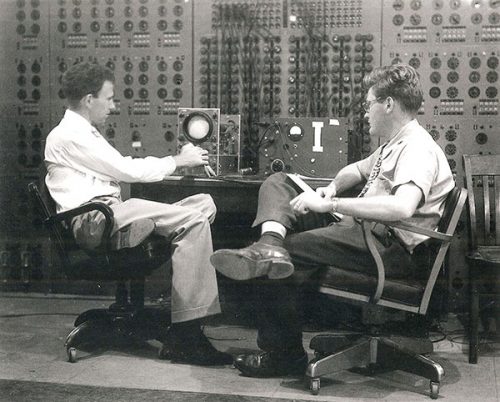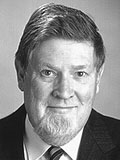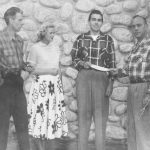By Don Stoll
Idyllwild Arts
Manager of Communications and International Student Relations
“That’s ancient history. I’ll tell you what resonates today, though.”
Bill Lowman, Idyllwild Arts Academy’s founding president, could have talked all day about Dr. Richard MacNeal, who had died in January at age 94. Lowman was planning what to say as one of the speakers at his longtime friend’s memorial service, in Pasadena tomorrow [Feb. 24]. The recollections had come in a torrent, but he was bent on capturing what was most important.
“Belief in education, commitment to academic and artistic quality, pride in the students whose success he supported so generously, belief

Photo courtesy Idyllwild Arts
in doing something meaningful with the wealth you could make in America … and commitment to entrepreneurial philanthropy.”
The words “entrepreneurial philanthropy” had recurred throughout Lowman’s stories of “the brilliant man who was the greatest guy you could imagine.” They were a reminder that

Photo courtesy Idyllwild Arts
MacNeal had seen the academy through its shaky first several years with more than generosity. Co-founding MacNeal-Schwendler Corporation (MSC), whose software was crucial in the aerospace industry’s infancy, had made MacNeal a multimillionaire.
But MacNeal wasn’t only generous, Lowman emphasized. He’d been bold — “entrepreneurial” — in giving his fortune to build an arts academy whose success was never guaranteed.
Idyllwild Arts Foundation’s board, including MacNeal, had brought Lowman from the Nevada School of the Arts, in Las Vegas, in 1985, ostensibly to fix a summer program whose excellence hadn’t kept it from losing money.
Unfortunately, the summer “model didn’t work,” Lowman concluded as his hard work failed to stave off a financial emergency.
An arts boarding school was within the original vision-mission of Idyllwild Arts Foundation and would attract more revenue. However, “we needed a library, dorms, and accreditation. What parents would send their child to an unaccredited school?”
Lowman’s determination and ingenuity equipped him to find solutions. But only because MacNeal was the right man to ask to pay for them.
“Almost monthly,” Lowman recalls, “I’d drive to his home in Garner Valley and come back with a check. I’d tell him what we needed and he’d say, ‘I’m willing to give the money because the mission is important.’”
It still is.










